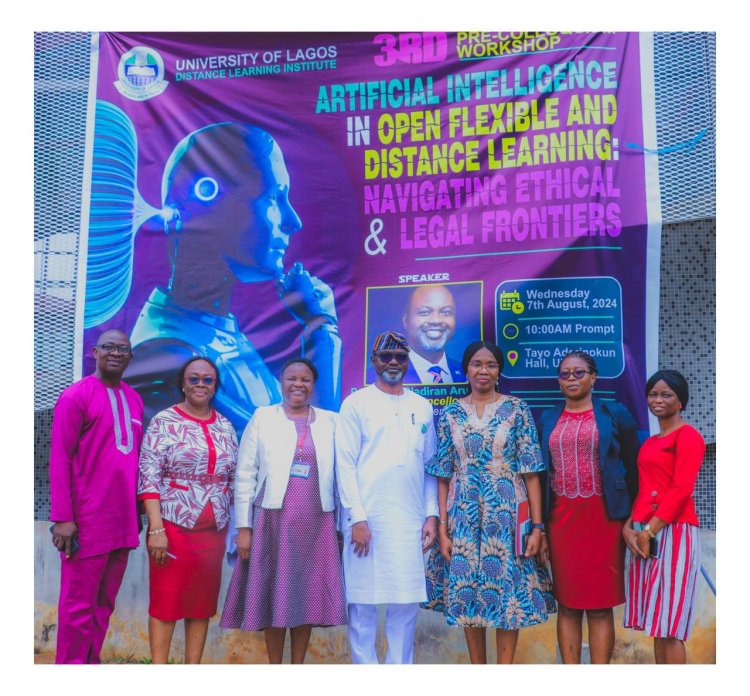3rd DLI Pre-Colloquium Workshop Highlights the Role of Data in Addressing Ethical and Regulatory Challenges in Artificial Intelligence
Professor Tayo Oladiran Arulogun, Vice-Chancellor of Miva Open University, emphasized the pivotal role of artificial intelligence (AI) and data in shaping policy interventions for sustainable development in open distance learning education.

Professor Tayo Oladiran Arulogun, Vice-Chancellor of Miva Open University Abuja, emphasized the pivotal role of artificial intelligence (AI) and data in shaping policy interventions for sustainable development in open distance learning education. His remarks came during the 3rd pre-Colloquium Workshop hosted by the Distance Learning Institute at the University of Lagos (UNILAG).
The workshop, held at the Tayo Aderinokun Hall, served as a precursor to the institute’s 3rd International Colloquium. Distinguished scholars and practitioners in open distance learning (ODL) convened to deliberate critical issues related to AI within Nigeria’s education sector. The workshop’s theme, “Artificial Intelligence in Open Flexible & Distance Learning: Navigating Ethical and Legal Frontiers,” provided a platform for insightful discussions.
Professor Arulogun, a renowned expert in Computer Engineering, highlighted the transformative potential of AI in enhancing educational planning, teaching support, and assessment. He underscored the need for ethical considerations alongside technological advancements. Specifically, he introduced the “5C’s of data ethics”: consent, clarity, consistency, control, and consequence. This framework aims to guide responsible AI implementation in Nigeria’s educational landscape.
Regarding AI-assisted grading, Prof. Arulogun acknowledged its benefits but cautioned against relying solely on automated systems for higher-level thinking and analysis. Ethical implications arise, especially given the subjectivity inherent in most written responses. Teachers play a crucial role in ensuring fair treatment for all learners.
During the workshop, participants actively discussed and exchanged insights on enhancing capacities and safeguarding human rights in the context of effective collaboration between humans and machines. The focus was on promoting sustainable development across various domains, including life, learning, and work.
The event included a dynamic question-and-answer session, allowing attendees to delve deeper into the topics covered. As the workshop concluded, a resounding call to action emerged: stakeholders must collaborate to implement the recommendations and strategies discussed during the event. By working together, they can drive positive change and advance the responsible use of technology for the benefit of all.

 UBA CHIDINMA
UBA CHIDINMA 



